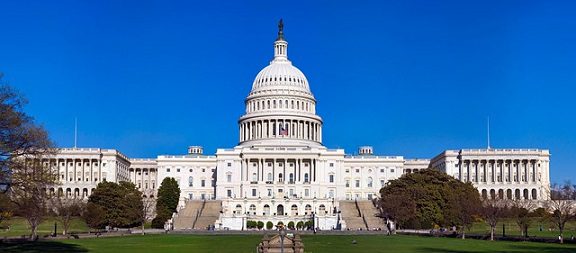
Mortgaging America’s Future
Short term drama tends to distract attention from long term thinking. There is no current shortage of short-term drama when it comes to American daily life. So, we should ask: what long-term issues are being downplayed, or outright ignored, as our attention is grabbed by bizarre and tragic events? Some people might argue that climate change is the central threat, others might go for social issues. Those are legitimate concerns but my biggest worry for the future of our country is the growth in Federal government debt.
The current US national debt is almost $37 trillion and represents over 120% of US gross domestic product. Pre-pandemic in 2019 the debt was $27 trillion.
The news gets worse. Even when the American economy performs strongly, often despite the efforts of the political class, the debt continues to rise. That has been the case since 2001. Moreover, servicing the debt is becoming increasingly expensive with the costs driven by both the higher level of debt and the higher interest rates that the Federal government must pay. Given the short-term nature of much of the US national debt, there will be further increases in the 2.97% average interest rate paid in 2023, at least in the next year or so. The Federal government is currently having to borrow additional money to pay its interest bill. Books on financial literacy do not recommend that type of behavior.
There are those who believe these Federal debt levels do not matter. I disagree. Eventually, one or more of the following things will happen: taxes will rise; cuts will be forced in government spending; the inflation monster will regain its strength; and/or the creditworthiness of the US will decline which will tend to increase our borrowing costs. We might even find it difficult to find purchasers of our debt.
This all seems obvious and yet none of the current political debates place any emphasis on the critical importance of managing the Federal government debt. That means there is little hope that our leaders, old or new, will address the problem.
There are two areas we should consider to avoid being caught in this mess. First, we must be cognizant of the likelihood that the tax regime will get worse for taxpayers. The 2017 Tax Cuts and Jobs Act will sunset at the end of 2025. Whichever party is in power, the question will become which taxes need to increase. That potentially applies not just to estate taxes but to income and capital gains taxes. Second, we should be aware of the dangers of being dependent on any government programs including Social Security. That is particularly true for those who might have hoped to benefit from those programs in the medium to longer term (our children and our children’s children).
If I had three wishes, one would be that our government returns to fulfilling its basic responsibility for the prudent management of our nation’s finances. In today’s political environment such a wish seems far-fetched.
Richard Rushton

